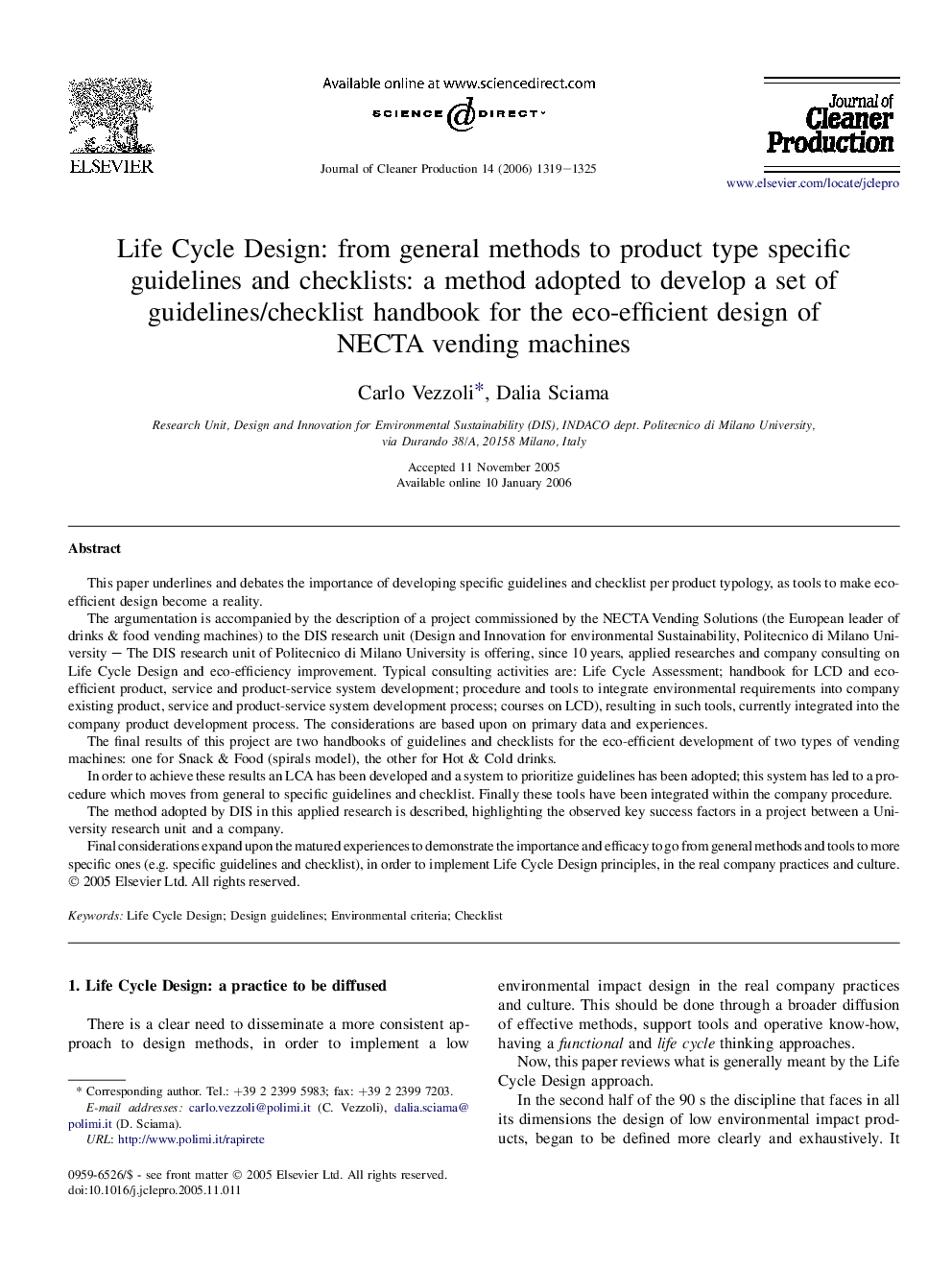| Article ID | Journal | Published Year | Pages | File Type |
|---|---|---|---|---|
| 1746899 | Journal of Cleaner Production | 2006 | 7 Pages |
This paper underlines and debates the importance of developing specific guidelines and checklist per product typology, as tools to make eco-efficient design become a reality.The argumentation is accompanied by the description of a project commissioned by the NECTA Vending Solutions (the European leader of drinks & food vending machines) to the DIS research unit (Design and Innovation for environmental Sustainability, Politecnico di Milano University – The DIS research unit of Politecnico di Milano University is offering, since 10 years, applied researches and company consulting on Life Cycle Design and eco-efficiency improvement. Typical consulting activities are: Life Cycle Assessment; handbook for LCD and eco-efficient product, service and product-service system development; procedure and tools to integrate environmental requirements into company existing product, service and product-service system development process; courses on LCD), resulting in such tools, currently integrated into the company product development process. The considerations are based upon on primary data and experiences.The final results of this project are two handbooks of guidelines and checklists for the eco-efficient development of two types of vending machines: one for Snack & Food (spirals model), the other for Hot & Cold drinks.In order to achieve these results an LCA has been developed and a system to prioritize guidelines has been adopted; this system has led to a procedure which moves from general to specific guidelines and checklist. Finally these tools have been integrated within the company procedure.The method adopted by DIS in this applied research is described, highlighting the observed key success factors in a project between a University research unit and a company.Final considerations expand upon the matured experiences to demonstrate the importance and efficacy to go from general methods and tools to more specific ones (e.g. specific guidelines and checklist), in order to implement Life Cycle Design principles, in the real company practices and culture.
